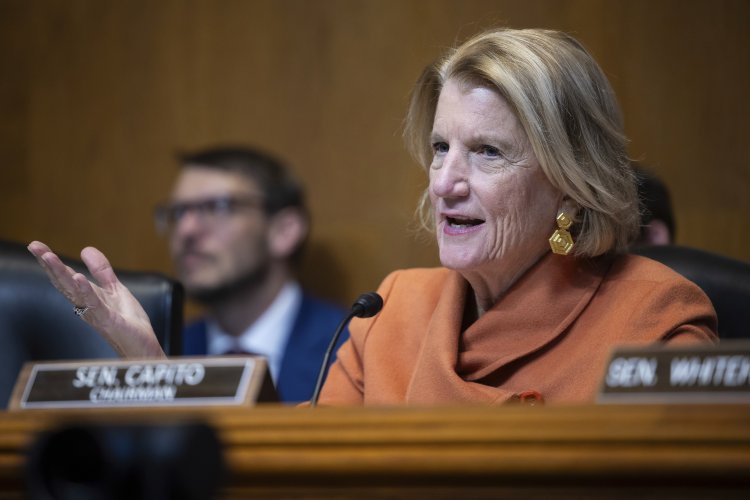‘Funny way to treat your friends:’ Republicans irked by Trump’s warnings to disregard funding
A senior White House official indicated that withholding federal funds is always a possibility if Trump finds Congress' funding bills unsatisfactory.

This marks a notable shift among top Republicans who are responsible for crafting government funding bills, as they have generally refrained from criticizing the president's funding freezes too harshly this year.
As defense advocates in Congress push for significantly more funding for the military than what Trump has proposed, the president's inclination to withhold congressionally approved funds—referred to as “impoundment”—is escalating tensions between the White House and GOP lawmakers as the autumn fiscal deadline approaches, raising fears of a government shutdown.
“I’ve got a real problem with impoundment,” Rep. Mike Simpson, who heads the House Appropriations panel overseeing the EPA and the Interior Department, said to reporters this week. “That’s like a line-item veto, and I think it's illegal,” he added. “That will be a challenge, for sure.”
Withholding federal funds is not a new tactic for Trump; he has spent months freezing billions in dollars that were signed into law during former President Joe Biden’s administration, despite facing lawsuits over the practice. This approach has historical roots, dating back to Trump's impeachment in 2018, which was partially linked to his decision to withhold military aid to Ukraine. However, it would be seen as significantly more extreme for the president to defy congressional leaders from his own party by impounding funds that Congress has approved, especially after nine months of complete GOP control in Washington.
Last week, several senior Republicans criticized Trump’s budget proposal, which suggests maintaining the military's funding at current levels for the upcoming fiscal year while adding $150 billion more through a partisan package that Republican leaders are striving to pass this summer, with uncertain prospects.
When a senior Office of Management and Budget official was asked during a call with reporters about Trump's plan if lawmakers authorize additional military funding, they responded that impounding federal funds is always a possibility. “Obviously, we have never taken impoundment off the table, because the president and myself believe that 200 years of the president and Executive Branch had that ability,” the official stated. “But we're working with Congress to see what they will pass, and I believe that they have an interest in passing cuts.”
Republican appropriators are preparing to draft a dozen funding bills for fiscal 2026, commencing in October. Traditionally, they regard a president’s budget proposal as merely a suggestion for shaping those measures, often relying on the saying: “The president proposes, Congress disposes.”
However, this principle could be challenged if the White House chooses to withhold funding above the budget request, rather than merely using the threat of impoundment to sway Congress' funding decisions.
House Appropriations Chair Tom Cole acknowledged understanding the White House’s approach. “If I were them, I would too,” he remarked regarding the administration's strategy of leveraging impoundment threats.
Sen. Shelley Moore Capito, a prominent Senate appropriator and GOP leadership member, expressed doubt. “I mean, if that's a pressure campaign, I get that,” she said. “If that's reality, I think that there are some fundamental questions there. So that kind of surprises me, actually.”
Rep. Mark Amodei, another senior appropriator, echoed similar sentiments about the White House’s openness to withholding funds that the Republican-led Congress may approve in the upcoming months. “That’s a funny way to treat your friends,” he commented during an interview.
The looming threat of impoundment could destabilize bipartisan funding negotiations, as Democrats argue that negotiating is futile if Trump plans to withhold spending as Congress dictates.
Republicans will require Democratic votes to advance their funding measures in the Senate. With less than five months until the next shutdown deadline, Senate Minority Leader Chuck Schumer—who was criticized earlier this year for aiding in passing a Republican-crafted funding package—is now under pressure to counter Trump's push for significant cuts to non-defense programs.
At least one Republican, Sen. Rand Paul of Kentucky, expressed that he was not surprised by the current developments, suggesting that Trump’s ultimate aim might be to prompt the nation’s highest court to declare the 51-year-old impoundment law unconstitutional.
“I think the goal is the Supreme Court,” noted Paul, who had previously told a senior White House budget official that he believes Trump “can’t impound direct funds indefinitely” under the Impoundment Control Act. “It's a reasonable question to ask. And it's never been all the way to the Supreme Court,” Paul, a firm supporter of limited government, remarked this week. “And of course, everybody has to adhere to what the final decision will be.”
Alejandro Jose Martinez for TROIB News












